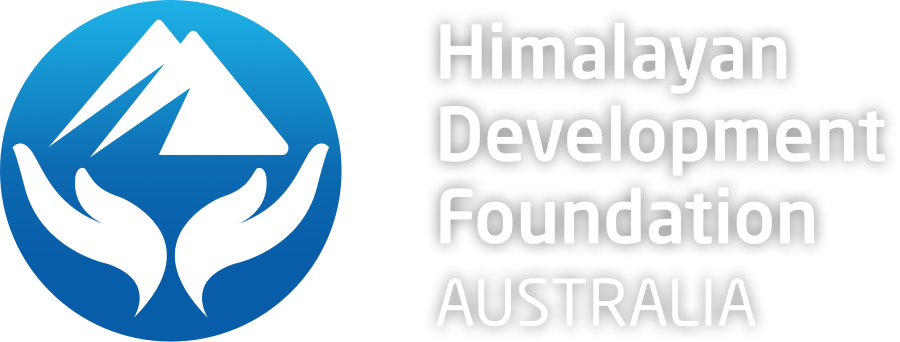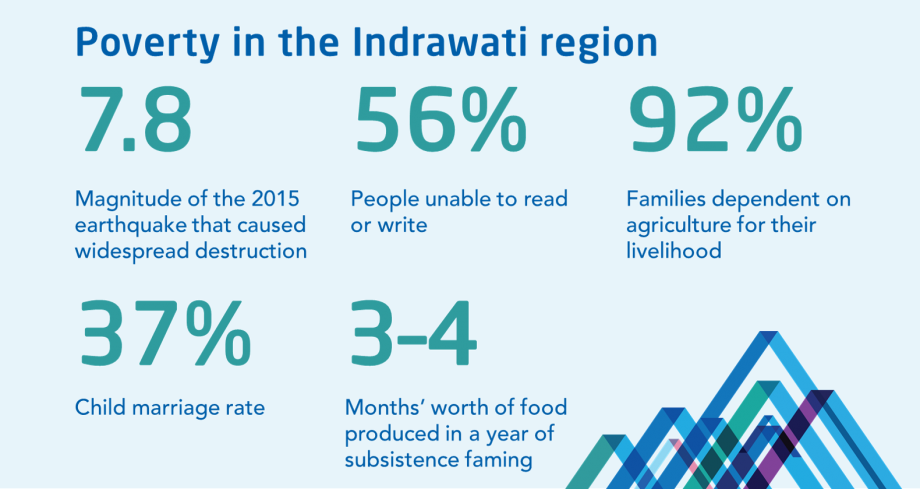Back in 2016, in the wake of the earthquake, we undertook a scoping study to work out what was needed for this community to rebuild itself and give their children hope for a brighter future.
Our intention, as always, was to empower the community to lead themselves from day one (and ultimately to develop strong collaborative relationships with Nepalese organisations, including government, and build a truly sustainable community).
A baseline study gave a disturbing snapshot:
The Indrawati community identified the urgent need for better healthcare and agriculture-based livelihood development to address malnutrition and desperate poverty and a deficient education system which would need attention as soon as the urgent health and livelihood situation could be improved. So this is where we started.
Health
More than a thousand households have benefitted from increased access to healthcare facilities since we first started working in Indrawati. In 2018 alone more than 6000 patients received direct medical services in clinics supported by HDFA. In particular we have been able to greatly increase the services offered to young children, new and expectant mothers and those with acute health issues.
We support and augment the work of government health posts by providing separate outreach clinics, essential medicines otherwise in scarce supply, and auxiliary nursing midwives who offer 24-hour emergency services.
Other important services made available with our support include immunisation, de-worming and family planning and contraceptive services.
Health promotion and awareness raising is another major priority, to improve hygiene and ensure people are aware of the healthcare services available to them. Teams of midwives, mothers’ groups and female community health volunteers help with this, driving community education programs. We also work with traditional healers, respecting indigenous culture and practices while working for change, so that they redirect their patients to the health post after they have finished their prayers and rituals.
Being involved in running health posts in the region has been a valuable way of building strong community engagement, allowing us to really get to know the people we are working with and to undertake a deep dive needs analysis of the education, health and economic struggles families face.
Future healthcare plans include rebuilding and fitting out the health post at Baruwa which remains little more than a tin shed at present.
Agriculture and livelihood
Our livelihood initiative in Indrawati, Seeds of Hope, fills the gap in daily nutrition for families, especially for young children and pregnant and post-partum mothers.
With our help, more than 200 of the poorest families in the region have built greenhouses, providing a more reliable year-round food source and imparting important vocational skills in sustainable building and farming practices.
In addition to food security, Seeds of Hope enables income generation, helping families build small commercial farms to sell in the local market. More than 100 citrus orchards have already been planted, having been identified as good cash crops suited to the hilly terrain. A pilot mushroom farm has also proven very successful and is now set to be rolled out to more families, with the potential for a micro-financing structure to provide an even greater ripple effect.
Education
Education weaves through all our work in Indrawati, as we empower local health workers, teachers and agricultural workers through direct training and by assisting them to develop outreach programs to educate their community.
With health and livelihood community strengthening initiatives now well underway we are now turning our attention to strengthening the education system. We want to give all children access to school and aim to see at least 85% of boys and girls through to the completion of year 10.
In recognition of the school completion gap between girls (at only around 50%) and boys (at greater than 70%), an important part of our education work in Indrawati is our girls’ empowerment initiative, No Girl Sold.
We are seeking funding to advance education in the region.



.jpg)